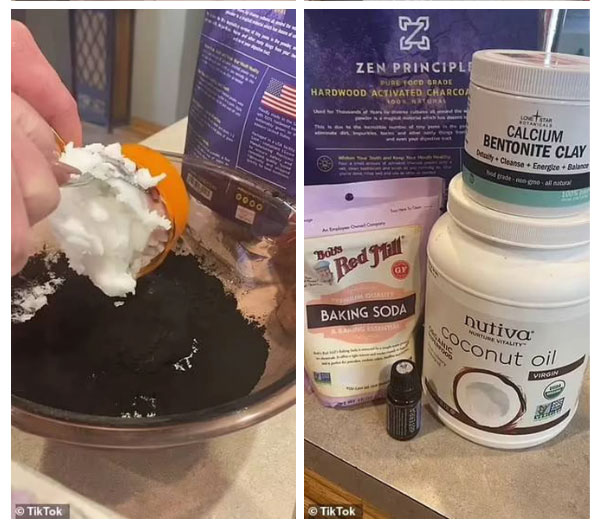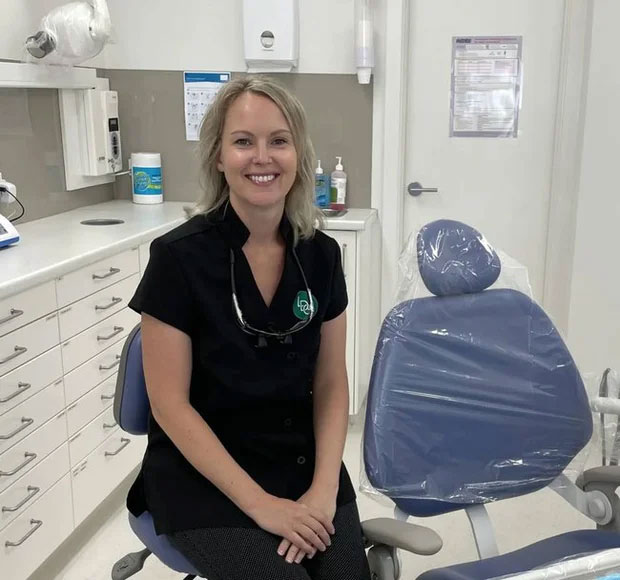The trend of herbal toothpaste with homemade recipes is going viral on social media platform TikTok, attracting millions of views. However, dentists are warning people to be cautious if they want to avoid health issues.
Hundreds of videos from TikTok users are circulating about homemade toothpaste recipes that include ingredients such as coconut oil, baking soda, lemon juice, vinegar, charcoal, and even hydrogen peroxide.

Homemade toothpaste is a hot trend on TikTok right now.
According to Dr. Cathryn Madden, a dentist and director of the renowned Bupa Dental Center in the UK, these homemade toothpaste recipes include ingredients like lemon, baking soda, salt, and charcoal. If these ingredients are not combined correctly and in the right proportions, they can be harmful to people’s teeth and lead to other issues. Meanwhile, fluoride is effective in preventing tooth decay and is added to toothpaste and mouthwash according to specific guidelines.
“Just because these ingredients are natural does not mean they are good for your teeth. Using acidic substances like lemon, or abrasive substances like baking soda and salt, can erode your tooth enamel or cause discoloration. Hydrogen peroxide can burn the gums and soft tissues in the mouth, while vinegar can also cause damage,” Dr. Madden stated.

According to Dr. Cathryn Madden, people should avoid homemade toothpaste and those without fluoride (Photo: Bupa)
Many of her patients have also mentioned that they are using homemade toothpaste or filtering fluoride out of their household water. Some even do this for their children.
“While it is a personal choice, we advise everyone to talk to their dentist before changing their oral hygiene habits, especially when it comes to children. Using homemade products or fluoride-free toothpaste can wear down your enamel, thereby increasing the risk of cavities, discoloration, and sensitivity. Once enamel is lost, it cannot be regained,” she said.
In light of the controversial trend of fluoride-free oral care products, she remarked: “Fluoride prevents oral health issues such as cavities and tooth loss. Therefore, claiming that fluoride is ‘dangerous’ is a mistake. What you need to do is maintain oral hygiene according to the advice provided by dentists.”
She also urged consumers to avoid following unverified social media posts about fluoride and oral hygiene practices. It is important to consult a dental professional rather than a “TikTok expert.” Dental professionals can guide you to an appropriate product even if you are looking for fluoride-free options. “Everyone is different, so don’t automatically assume that a new product favored by a celebrity will be right for you,” she advised.


















































